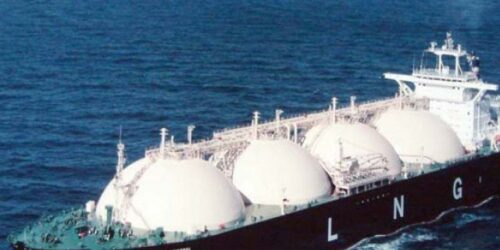During a virtual conference entitled, ‘Biogas: Driving the transition from fossil to green’ – hosted by the World Biogas Association and the World LPG Association, – bio-liquefied natural gas (bio-LNG) and its role in the maritime industry was discussed by Benoit Duee, Commercial Director at FOSMAX LNG.
As countries across the globe take aim at reaching Paris Agreement targets and achieving net-zero goals, alternative fuels have seen widespread adoption in multiple industrial sectors.
One such sector, the maritime industry, has been utilising the benefits of LNG for some time, with energy giants such as ExxonMobil, Chevron, Total, and bp all investing in LNG carriers to transport the fuel.
Saying that the use of LNG in the maritime sector should be a ‘no brainer’, Duee extolled the virtues of LNG, calling it probably one of the only fuels which is abundant, available and safe.
“And the price, of course, we see immediate benefit in terms of nitrous oxide (NOx) reduction, of particulate reduction, but also in greenhouse gas reduction which sees a reduction of 23% compared to conventional fuel,” he added.
Despite this, Duee admitted that LNG by itself is not sufficient to meet the targets for decarbonisation, particularly those set by the International Maritime Organisation (IMO), which set a 2030 target of carbon dioxide (CO2) reduction by 40% compared to 2008.
Enter bio-LNG. Bio-LNG and its ‘cousins’, synthetic LNG and e-LNG are able to complement LNG to further reduce greenhouse gases.
Stating that it’s ‘absolutely urgent’ to develop bio-LNG from a biogas perspective, Duee explained that there is potential for adoption of the fuel sooner rather than later.
“It is not so much a question of potential, because a recent study from CEDelft stated that large-scale bio-LNG supply produced from sustainable biomass could be available as soon as 2030.”
Duee also explained that, to unlock the potential of bio-LNG, production must be supported and the gap between the current costs of natural gas and production of bio-methane must be filled.
To expediate the process, he also emphasised the important of regulation, saying, “Regulation is also very important and we also have to create an efficient link between production place and consuming areas to provide competitive bio-LNG to customers.”
Further adoption can be met by the establishment of LNG terminals, as there exists a natural link between local bio-LNG production and consumption in the maritime sector.
Concluding, Duee said that jurisdictions should be put in place between production places and LNG terminals, allowing LNG to be transported at a competitive price, as well as supporting adequate regulation.







